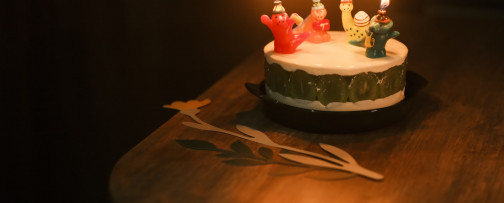Dealing with the loss of a loved one is a challenging process that can be particularly difficult on the anniversary of their death. This day can bring back painful memories and emotions, making it hard to navigate through. However, there are ways to cope and find comfort during this time. This guide will provide you with strategies and tips to help you through this difficult period.
Understanding Grief
Grief is a natural response to loss. It's the emotional suffering you feel when something or someone you love is taken away. Often, the pain of loss can feel overwhelming. It's important to understand that grief is a process, not a state. It's something that you work through, not something that you overcome in a single day.
Everyone experiences grief differently. Some people may feel a deep sadness, while others may feel anger, guilt, or even relief. These feelings can be confusing and can make the grieving process even more difficult. It's important to remember that there is no right or wrong way to grieve. Your feelings are valid and it's okay to express them.
Preparing for the Anniversary
Anticipatory Grief
As the anniversary of your loved one's death approaches, you may experience anticipatory grief. This is a form of grief that occurs when we anticipate a forthcoming loss or a painful event. It's common to feel a sense of dread or anxiety as the date approaches. It's important to acknowledge these feelings and not to suppress them.
One way to manage anticipatory grief is to plan ahead. Decide how you want to spend the day. You might choose to spend it alone, or with family and friends. You might want to visit your loved one's grave, or you might prefer to do something that your loved one enjoyed. Planning ahead can give you a sense of control over the day.
Creating a Ritual
Creating a ritual can be a comforting way to mark the anniversary of your loved one's death. This could be something simple like lighting a candle in their memory, or something more elaborate like hosting a memorial service. The ritual can be a private affair, or it can involve others who were close to your loved one.
The purpose of the ritual is to honor your loved one and to give you a structured way to express your grief. It can also provide a sense of continuity, a way to feel connected to your loved one even though they are no longer physically present.
Managing Your Emotions
Allow Yourself to Feel
It's important to allow yourself to feel whatever emotions come up on the anniversary of your loved one's death. You might feel sadness, anger, guilt, or a host of other emotions. These feelings are a normal part of the grieving process.
Try not to judge your feelings or to push them away. Instead, acknowledge them and allow them to be. It's okay to cry, to scream, or to sit in silence. It's okay to laugh, to smile, or to find joy in memories. Your feelings are your own, and they are valid.
Seeking Support
Don't hesitate to seek support if you need it. This could be from a trusted friend or family member, a grief counselor, or a support group. Sometimes, just talking about your feelings can help to alleviate them.
Remember, it's okay to ask for help. You don't have to go through this alone. There are people who care about you and who want to support you through this difficult time.
Remembering Your Loved One
Sharing Memories
Sharing memories of your loved one can be a comforting way to mark the anniversary of their death. You might choose to do this privately, by looking through photo albums or reading old letters. Or, you might choose to do this with others, by telling stories or reminiscing about good times.
Remembering your loved one in this way can help to keep their memory alive. It can also provide a sense of connection, a way to feel close to your loved one even though they are no longer physically present.
Creating a Legacy
Another way to honor your loved one is to create a legacy in their name. This could be something tangible, like planting a tree or creating a memorial scholarship. Or, it could be something intangible, like living out a value that your loved one held dear.
Creating a legacy can provide a sense of purpose, a way to channel your grief into something positive. It can also provide a sense of continuity, a way to keep your loved one's spirit alive in the world.
Conclusion
Coping with the anniversary of a loved one's death can be a difficult process. It's a day that can bring up painful memories and emotions. But with understanding, preparation, and support, it's possible to navigate through this day in a way that honors your loved one and your own feelings of grief.
Remember, there is no right or wrong way to grieve. Your feelings are valid and it's okay to express them. And while the pain of loss can feel overwhelming, it's important to remember that grief is a process, not a state. It's something that you work through, not something that you overcome in a single day.
Recommended Products
- Memorial Picture Frame — A memorial picture frame for treasured photos of loved ones
- Woodamore Share a Memory Cards — Beautiful 50-pack memory cards for celebrating the life of a loved one at memorials and gatherings.
- How to Go on Living When Someone You Love Dies — Practical guidance for navigating life after a significant loss.


-banner.png)





